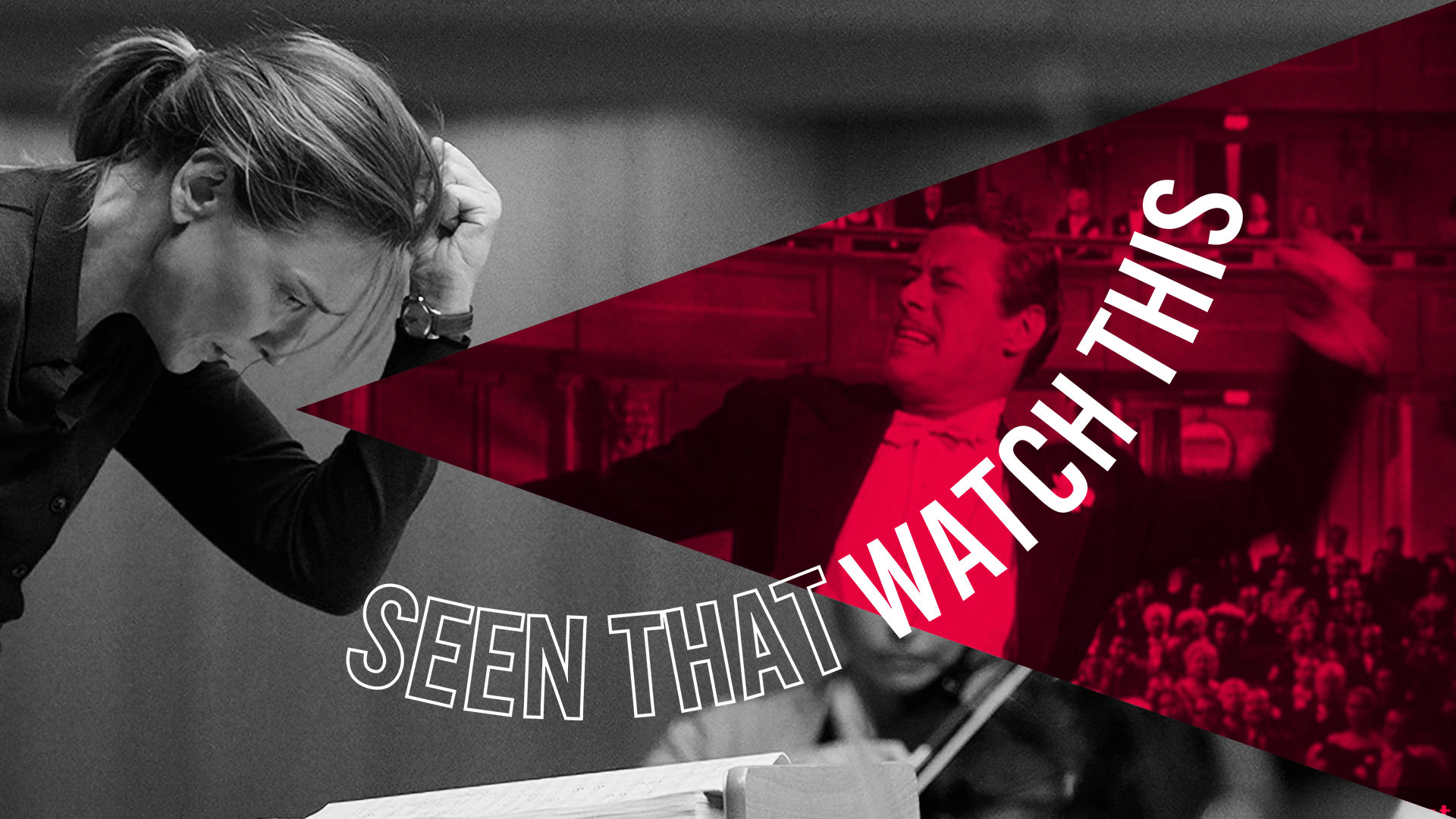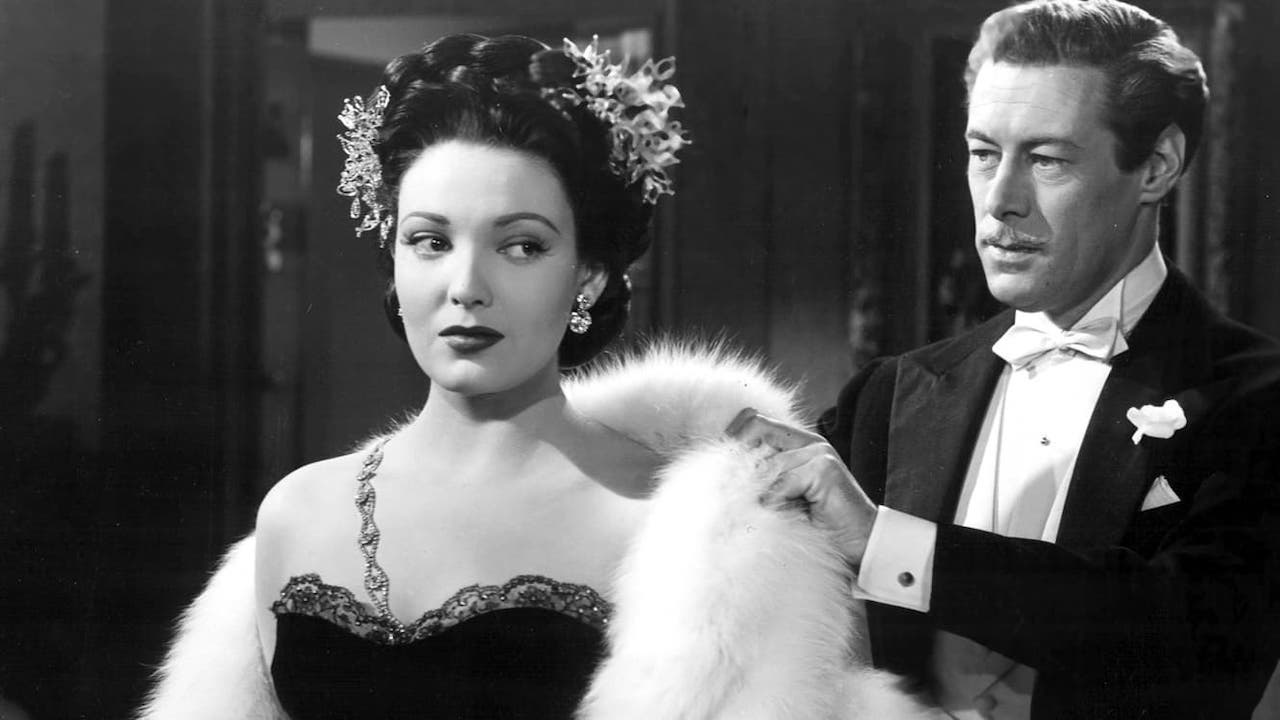After Tár, watch Unfaithfully Yours – the wildest maestro movie ever conducted

Seen That? Watch This is a weekly column from critic Luke Buckmaster, taking a new release and matching it to comparable works. This week, the high-strung egos of battling orchestra conductors in Tár and Unfaithfully Yours make not-so-sweet music together.
Remember that film about the gentle, sweet, kind-hearted conductor? It doesn’t exist. As Cate Blanchett’s widely acclaimed new drama Tár reminds us, maestros are pretentious douche bags at best, and quite possibly much worse. At least according to the movies. Like JK Simmons’ “not quite my tempo” antagonist Terence Fletcher in Whiplash, whose pursuit of excellence involved out-screaming the drill sergeant from Full Metal Jacket, Blanchett’s Lydia Tár takes the “suffer no fools” shtick in extreme directions. Also, she’s not only a bully but a sexual predator, the film gaining traction in the zeitgeist partly of its impact as—quoting Blanchett—”a meditation on power” with a core message that “power is genderless.”
Writer/director Todd Field begins with a scene loosely addressing the fact that most of us have no idea what conductors actually do, beyond a whole lot of air-stabbing and baton-waving. Participating in a live on-stage interview, Tár says conducting is all about manipulating time—and “keeping time is no small thing.” In fact time “is the thing,” she adds, before expressing a metaphor involving how she knows “the exact moment you and I will arrive at our destination together.” It’s obvious from the start that the protagonist is erudite and eloquent. It’s soon revealed her silver tongue also delivers severe lashings—eviscerating one pupil so badly for instance he calls her a “fucking bitch” and storms off.
As the humiliated young man exits the room Tár delivers a venomous response, calling him a “robot”; describing social media as “the architect of your soul”; and calling for him to “stand in front of the public and God and obliterate yourself!” Sheesh. These baton-waving time people are an intense lot. But while Tár the character is bold, hot-blooded and intemperate, Tár the film is calm, calculated and patient, constructed with long or longish shots, a steady pace, and evenly modulated editing. The protagonist influences the film’s content, not its form.
For a glorious example of how a character can be used to merge the two—triggering a symphony of form and content—consult the greatest film ever made about a conductor: Preston Sturges’ jet-black comedy Unfaithfully Yours. Don’t let its year of release—1948—deter you: this wickedly entertaining production has an eternal kind of sassiness (if you want a second opinion, Quentin Tarantino declared it the ninth best film ever made).
And for all the ferociously magnetic presence of Tár and Fletcher, I reckon the protagonist of Unfaithfully Yours—Rex Harrison’s Sir Alfred de Carter—has their number. Each of these conductors imply a thin line between baton-wielding genius and utter psychopath. But this guy is something else, with a personality so big he changes the very way viewers perceive the world around him.
Like Tár, Sir Alfred is high-minded and loquacious, claiming music has “a certain moral and antiseptic power quite apart from its obvious engorgement of the senses, which elevated and purified its disciples.” Even casual greetings become sophisticated sentences. Early on, for instance, he welcomes his brother-in-law with the following greeting: “Now, my dear August, what happy updraft wafts you hither?”
Listening to that line makes me want to revisit one of the many stinky, woebegone pubs I’ve drank in over the years and repeat those last six words to a patron—just to see if I can say them without getting punched in the face. Like Lydia Tár, Sir Alfred goes on about the whole keeping-time thing (“my family’s product has kept England on time since Waterloo,” he says, only half joking) and isn’t easily buttered up. In fact he’s outrageously rude to a man who assigns him the status of the greatest conductor in the world, cruelly retorting: “Spare me your compliments. The flattery of a footpad is an insult in itself.”

Unfaithfully Yours is entertaining from the start, laced with Sturges’ trademark snap-crackle wordplay and sprinkled with slapstick set pieces. But the film goes next level when Sir Alfred discovers his substantially younger wife, Linda Darnell’s Daphne, visited the hotel room of his secretary Anthony (Kurt Kreuger) late one night, and assumes they had an affair. That evening, while conducting, he fantasizes three different ways of responding. In the first scenario, he violently kills her and frames Anthony for the murder. In the second he’s heavy-hearted and melancholic, wishing them all the best. In the third he’s unhinged again, and potentially suicidal—insisting on a game of Russian Roulette.
The twist is that each fantasy matches the tone of the music Sir Alfred is conducting, which accompanies each sequence (the ultra macabre, stabby-stabby first scenario for example is scored to the intensely dramatic Overture to Rossini’s Semiramide). Are we watching dramatic scenarios that visualize music, or listening to music scoring the scenario? The answer is both: a rousing synergy, tuned to the psychology of the protagonist. Sir Alfred is conducting inside the film, as well as, in a sense, conducting the film itself. It’s an ingenious concept, executed with wit and bravado.



















